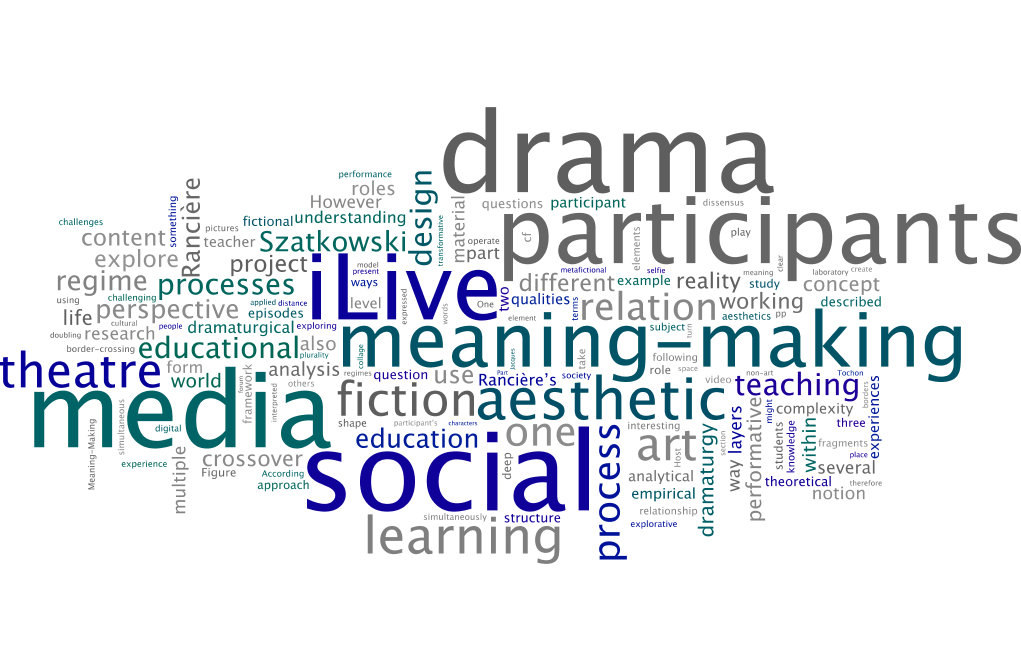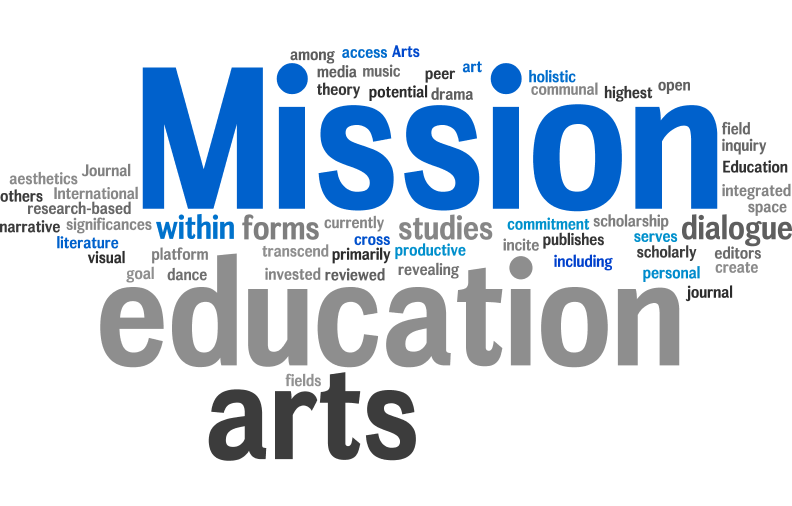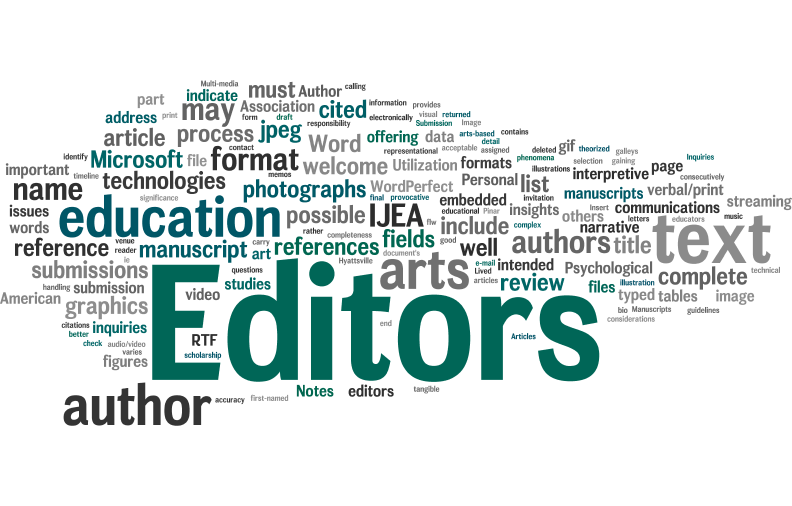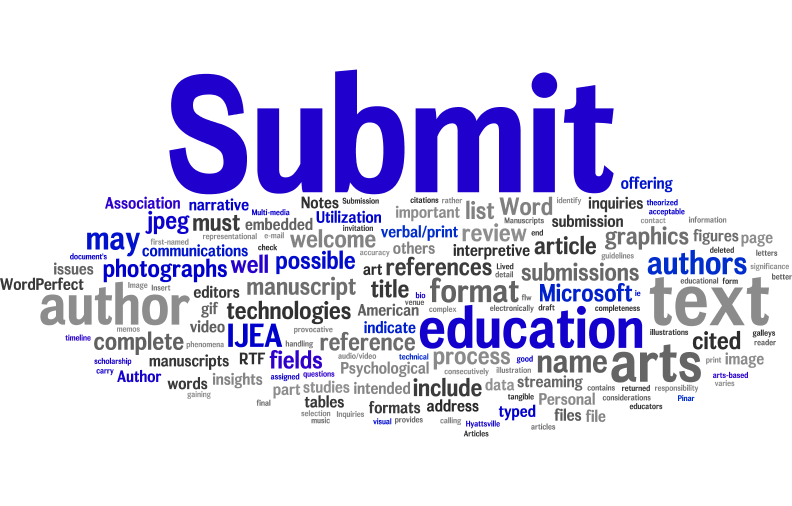| Volume 19 Number 1 | February 10, 2018 |
Challenging Fiction: Exploring Meaning-Making Processes in the Crossover Between Social Media and Drama in Education
Kristian Nødtvedt Knudsen
Norwegian University of Science and Technology, Norway
Citation: Knudsen, K. N. (2018). Challenging fiction: Exploring meaning-making processes in the crossover between social media and drama in education. International Journal of Education & the Arts, 19(1). https://doi.org/10.18113/P8ijea1901
Abstract
The aim of this study was to explore how meaning-making activity can be expressed and shaped in the crossover between drama in education and social media. This study concerns the use of empirical material from an educational drama project called #iLive, which was designed and implemented, on four different occasions with a total of 89 students from upper secondary schools in Norway in autumn 2015. The results indicated that operating in the crossover between drama and social media was a way of challenging the aesthetic qualities of drama in education. For instance, it was found that the way in which social media simultaneously frames several platforms for social interaction and blurs the boundaries between fiction and reality was different from working with fiction in relation to the teaching and learning of drama. Meaning-making processes in educational drama often tend to mediate through the vehicle of fiction by asking questions like what is the play really about? Such challenges, and the fresh questions that were raised as part of the project, led me to the philosopher Jacques Rancière’s “aesthetic regime” (2004) and his notion of dissensus. In the analysis, I adapted his theory as a theoretical framework for the discussion of how social media can revitalise the teaching and learning of drama. Based on this, I suggest that meaning-making processes in the crossover between drama and social media can be described as transformative, in that they redistribute and re-negotiate fragments of fiction or reality, and involve border-crossing activities between the notions of art and non-art.
Visual Abstract





